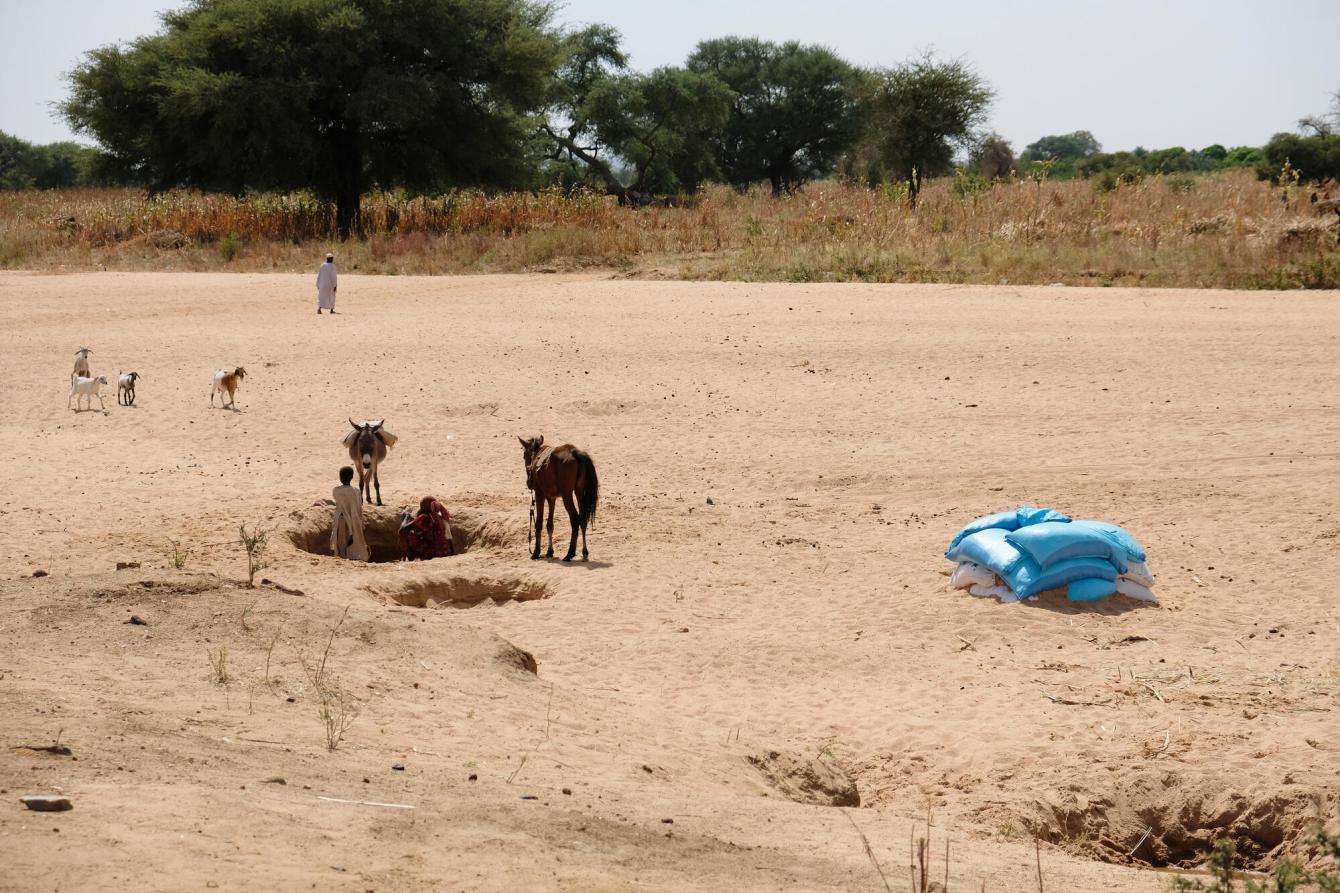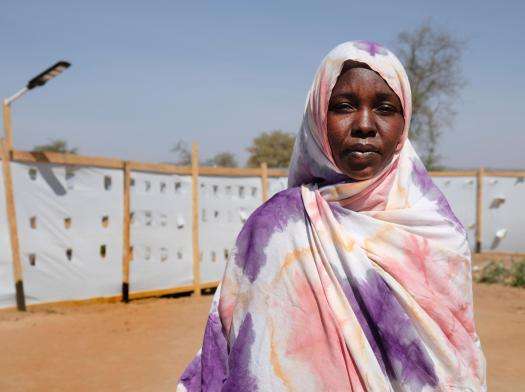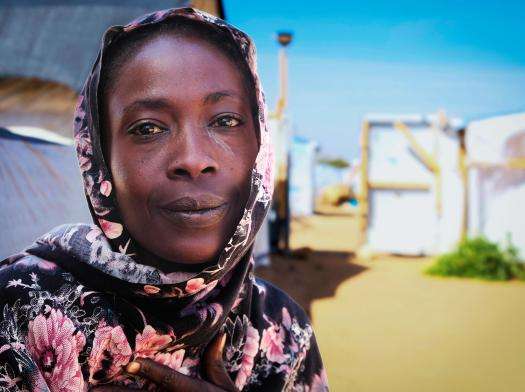Water is desperately scarce in camps where refugees and returnees displaced from Sudan are sheltering in eastern Chad. People living in these camps face extremely poor living conditions, with not only a severely limited water supply but food insecurity and a lack of latrines and proper waste management.
These conditions present a major public health risk. Doctors Without Borders/Médecins Sans Frontières (MSF) medical teams are seeing an increase in skin conditions, gastrointestinal infections, and acute watery diarrhea, which is particularly risky for children with malnutrition.
Chad has long grappled with water scarcity, but the strain on resources in places like Metche has reached a critical level. After the war broke out in Sudan in April 2023, large numbers of Sudanese refugees and Chadian returnees crossed the border into Chad. Initially, they stayed in transit camps in the border town of Adré, but some were later relocated to camps across the province. In early September, around 40,000 refugees and returnees were resettled in Metche. Three months later, with the rainy season over, they face severe water shortages.
People in Metche camp receive just six liters of water per person each day to be used for drinking, cooking, and washing—far below the 20 liters recommended by the World Health Organization (WHO) during emergencies. Six liters per day is not enough to survive without compromising people’s health.

Harnessing traditional methods of water collection
Metche camp is located in a remote, arid region about 25 miles from Adré, a town bordering Sudan. Until recently, the region had no modern water infrastructure. Instead, its 2,000 to 5,000 residents relied on traditional methods to access water, collecting water from dry riverbeds, or wadis, or using wells dug by local farmers.
Working closely with the local community, MSF water and sanitation engineers are drilling new boreholes—a mechanized process that is both time-consuming and expensive—as well as tapping into traditional methods of water collection. “Working in this region poses logistical challenges due to its remoteness and poor roads,” said MSF water and sanitation advisor Paul Jawor. “Mobilizing drilling companies here takes time—time that people cannot afford.”

To respond to the emergency more quickly, MSF teams are utilizing existing community knowledge and water collection methods, while introducing tools to expedite the process.
“People are used to gathering water from the dry wadis,” added Jawor, “and they continue to do so, as the amount of water we can currently distribute is insufficient. Alongside community leaders, we’ve now implemented a water system in the dry riverbed to capture rainwater that permeated the sand during the previous rainy season. While it is not a permanent fix, it can provide some immediate relief and could be used in the future by the local community.”
Despite efforts by MSF teams to identify and establish new water sources, there is much uncertainty regarding the amount and quality of the available groundwater supply. The camp and the host community are still receiving too little water to meet people’s basic needs.

Health risks surge amid water shortage
Some people in Metche camp are unable even to access six liters of water, especially those who live far from a water distribution point. With safe water in such a limited supply, people are forced to prioritize its usage.
“Mothers tell us they have 20 liters of water for seven people in their house,” said MSF project medical referent Marina Pomares Fuentes. “They’re compelled to choose: to drink or cook? Their priority isn't maintaining hygiene.”
The resulting poor hygienic conditions creates health hazards. “The environment is very dirty,” said Fatuma, an engineer and women's representative in the camp. “Without enough water, people cannot wash their clothes or themselves, which is huge problem for the children.”
“The water distribution [point] is very far. I bring back two jerrycans of water each day for a family of eight,” said Nadia Omar Mohammad, another resident in the camp. “Clean water is only for cooking, drinking, and washing for prayer. We wash the clothes and our children in the wadi. This is the only way we can manage, and sometimes we don't even have enough water for drinking.”

Chad 2023 © Linda Nyholm/MSF
At MSF´s outpatient clinic in Metche, staff have seen a surge of infections and skin diseases, particularly among infants and children. In the past four weeks, 16 percent of the patients treated by MSF in Metche had eye infections or skin diseases such as rashes, dermatitis, and scabies.
MSF medics are concerned about the rise in cases of acute watery diarrhea, especially among children under five, many of whom already suffer from malnutrition. In the past month, 13 percent of consultations at MSF´s clinic were related to diarrhea and digestive infections.
“The illnesses we're witnessing are entirely preventable,” said Fuentes. “It's a vicious cycle: Unclean water and lack of food make people sick, yet without safe water, they are just getting sicker.”
A rapid nutritional assessment by MSF teams in October found that 7 percent of children under the age of two in Metche camp were suffering from severe acute malnutrition, and that the overall prevalence of acute malnutrition in children under the age of five was 13.6 percent. These percentages are well above the emergency thresholds established by WHO. In concrete terms, this means that children who have survived the deprivation, unrelenting attacks, and extreme violence that have engulfed Sudan for months are now in alarmingly poor health.

Chad 2023 © Linda Nyholm/MSF
MSF activities in eastern Chad
MSF teams in eastern Chad are responding to the medical and humanitarian needs of Sudanese refugees and Chadian returnees in Ouaddaï and Sila provinces. In Ouaddaï province, MSF teams are providing medical care at the Ministry of Health’s hospital and pediatric unit in Adré, including at the Adré transit camp and along the border with Sudan. In addition to the clinic in Metche, MSF teams are also running a hospital in Ourang camp. In Sila province, MSF mobile clinic teams are providing medical care in Daguessa and Goz Achiye and supporting health facilities.
MSF water and sanitation engineers are providing refugees with clean water in three camps: Adré, Ourang, and Metche. At Adré transit camp, MSF teams are currently providing 750 cubic meters of water per day, and people are receiving some 5.5 liters of water per person each day. In Ourang camp, where MSF also provides clean water, refugees are currently receiving 8.6 liters of water per person each day. Despite our work increasing access to water in Metche camp, where we are the main water provider, refugees there are still not receiving enough to meet basic health needs.




